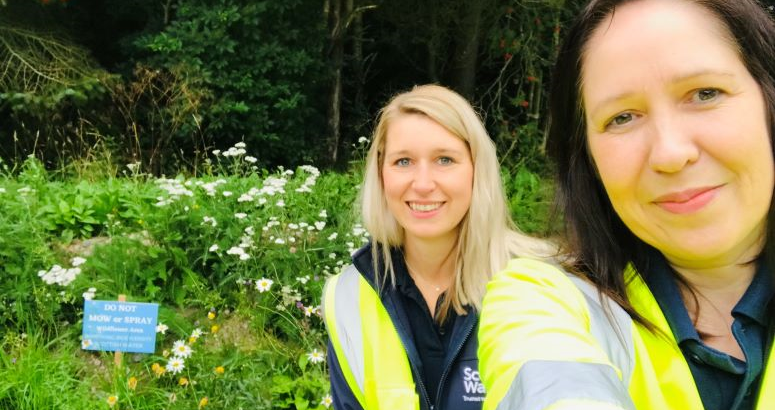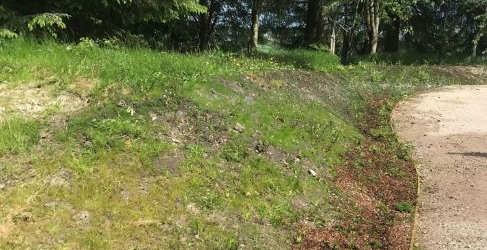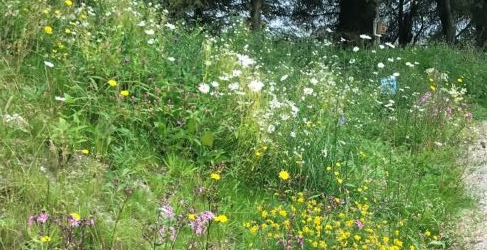Scottish Water Goes Wild for Biodiversity in Aberchirder
31 August 2021
The bees are buzzing in Aberchirder
Scottish Water staff have planted wildflowers at Aberchirder WWTW to help promote biodiversity at the site
The project, at Aberchirder Waste Water Treatment Works, has seen more than 40 species of wildflowers planted at the site, along with bird boxes and bug hotels to promote biodiversity.
Process scientist Nichola Hepburn was inspired to try the experiment after having success with her own wildlife pond area at home and is delighted with the results.
She said: “As a team we thought this would make for a lovely biodiversity project and started planting the flowers in May – we are amazed at how fabulous the area now looks and how successful it has been.
“We planted over 40 different species of wildflowers and put-up bird boxes and bug hotels which is especially important for our area as the north-east of Scotland has had the largest decline of native flowers in the UK.
“We also don’t cut the grass or use any sprays on the wildflower areas which is more sustainable and much better for the environment.”
She added: “We hope this shows how easy it is for anyone to do - once established, the plants don’t require any maintenance, so if anyone has been thinking of giving it a try, I’d say to go for it!”

The site before the wildflowers were planted

The area is now a wildflower haven for bees and butterflies
Curam Wildflower Nursery, based in Fyvie, helped provide advice to the team on what to plant and provided them with local provenance wildflowers.
Waste water team leader for the east, Nina Ker, said that other potential sites across the region were already being considered for similar projects.
She said: “I knew Nichola was interested in biodiversity and this seemed like an great way for us to try and support the rewilding of certain spaces.
"Biodiversity is so important to halt the decline of the insect population and to help the pollinators we rely on for our food, so we are already looking at where we can introduce similar spaces at other Scottish Water sites in the area.
“An added bonus is that it’s a fantastic environment to work in, being surrounded by wildflowers, butterflies and bees. All round it’s a win-win!”







